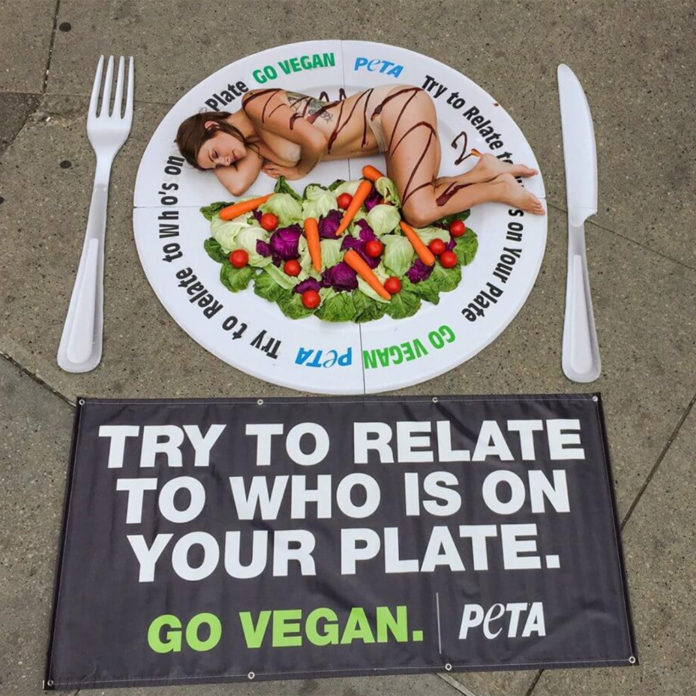PETA’s most recent campaign seeks to change our language to be kinder and gentler to animals.
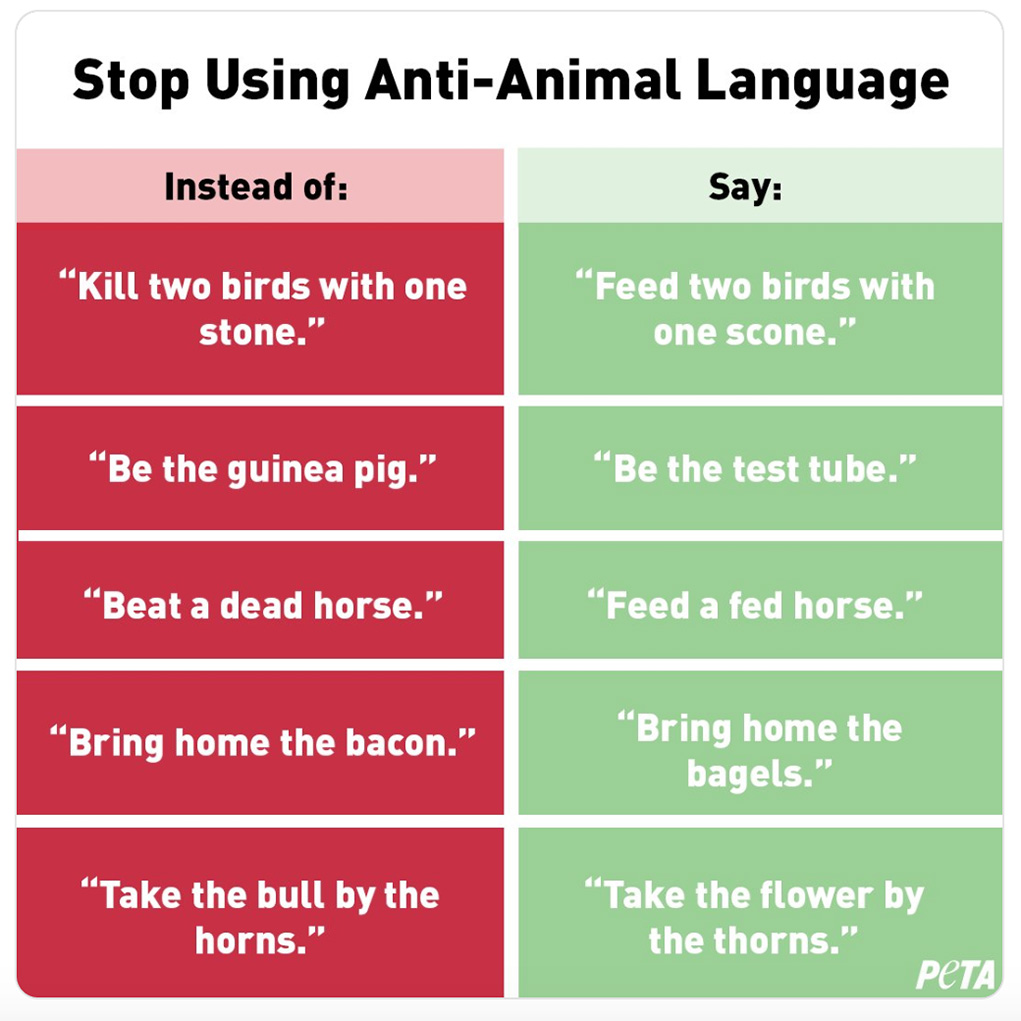
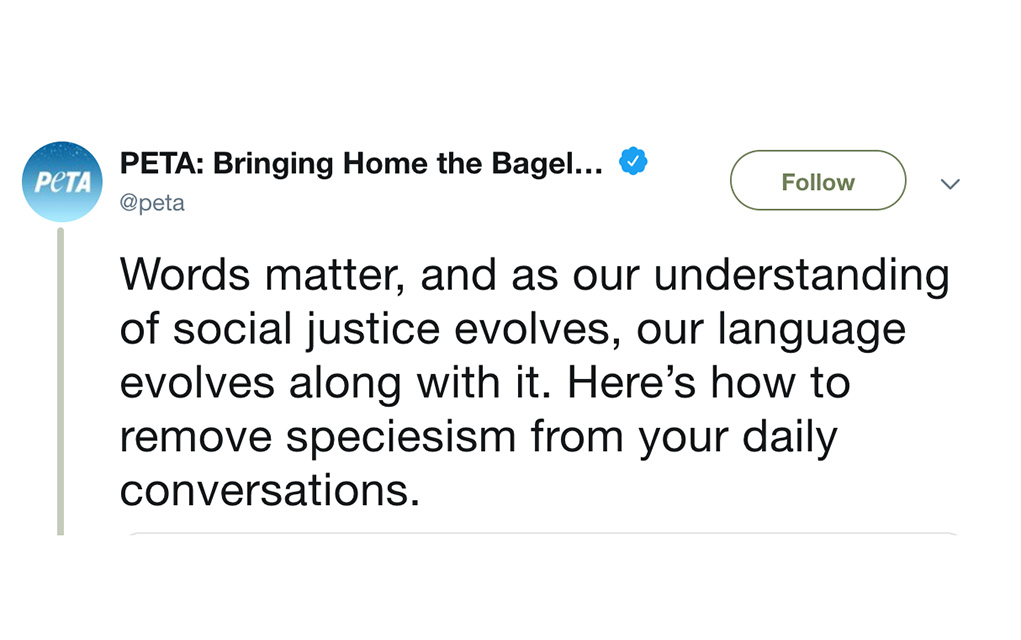
The “I’d rather go naked” campaign had garnered a lot of attention over the years – especially for its celebrity appeal.
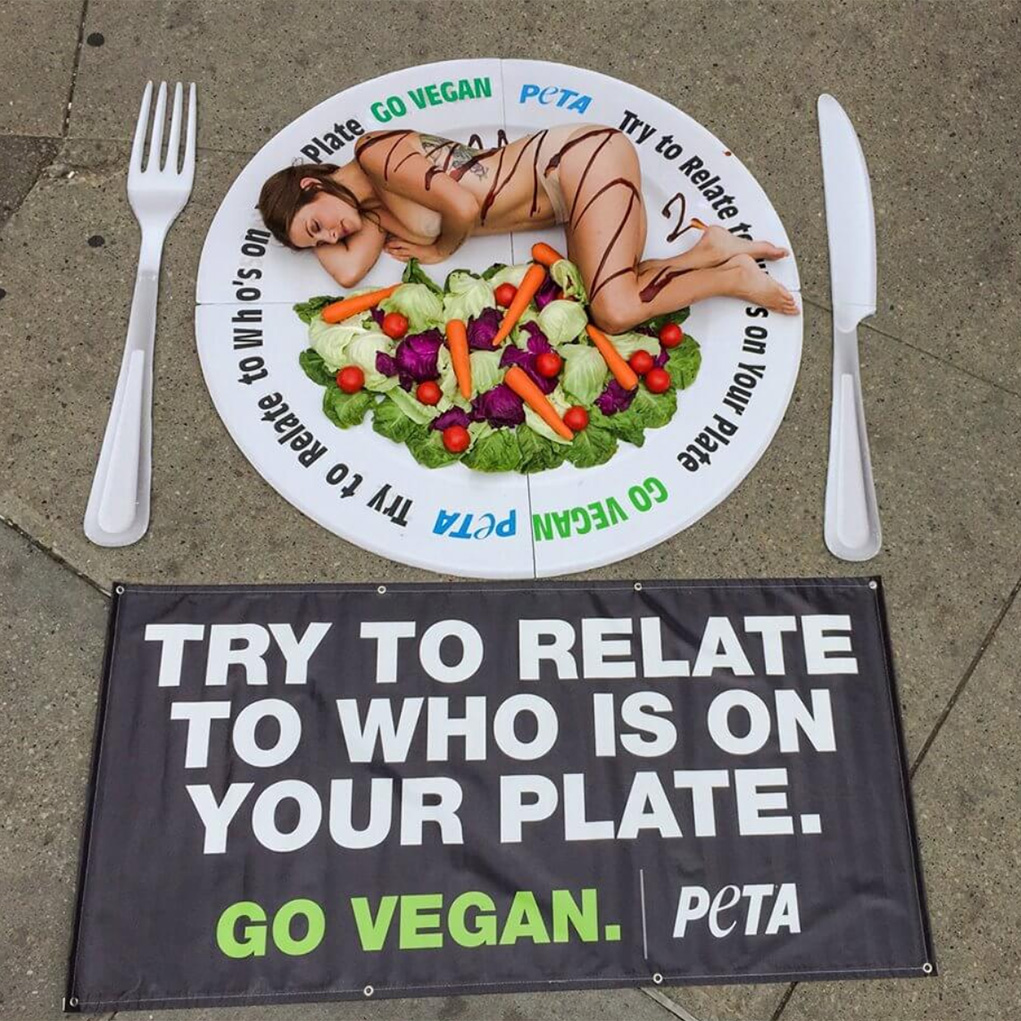
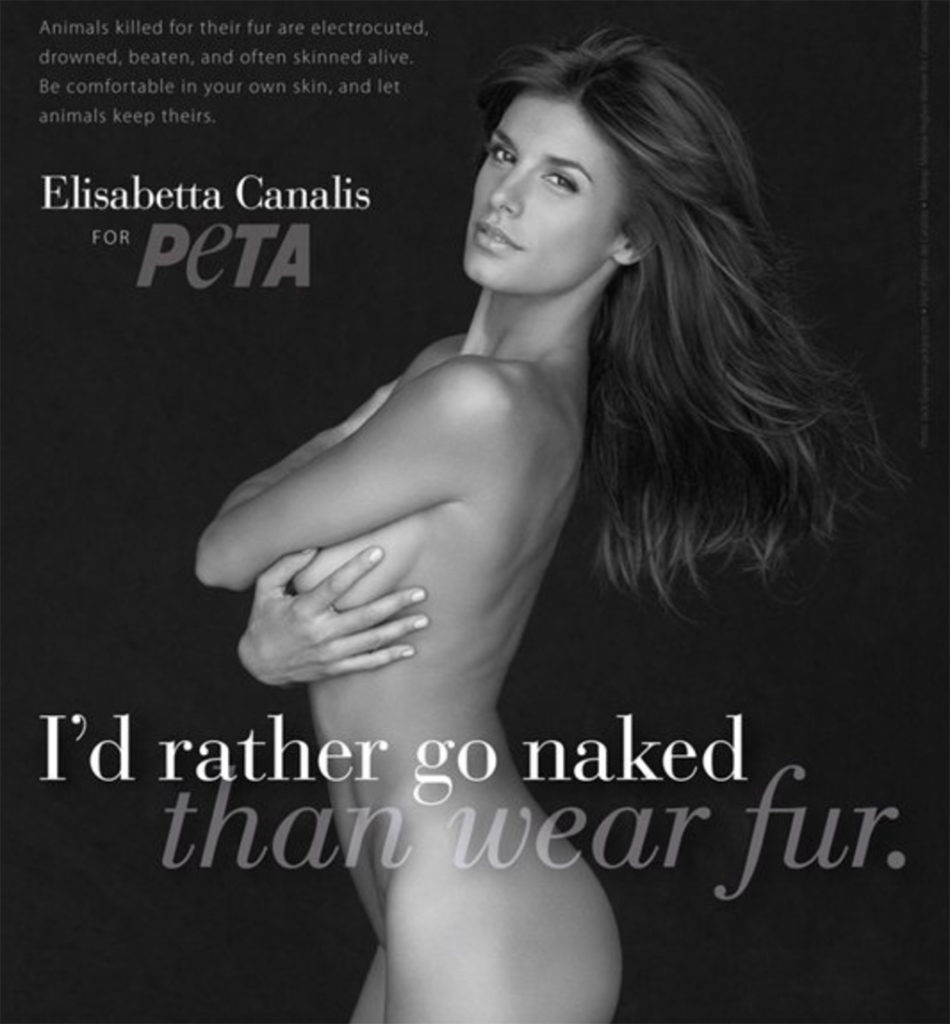
Oh, PETA. I don’t even know where to begin. For the (luckily) uninitiated, PETA (People for the Ethical Treatment of Animals) is an animal activist group that was started in 1980 in the United States, and became very well-known after its work resulted in a police raid of a research facility using primates. That ultimately resulted in the establishment of the Animal Welfare Act in 1985, and turned PETA into a household name.
The organization focuses on four major areas – factory farming, fur farming, animal testing and the use of animals in entertainment. PETA is known for its extreme messaging – and I think in some ways, that has been our saving grace. Maybe. With more than six million members worldwide, PETA has clout. And celebrity power. And real celebrities behind the cause – and posing naked in front of it, too.
PETA’s “I’d rather go naked” campaign has been incredibly successful and the fur industry in the developed world has plummeted. The UK and Austria have banned fur farms entirely, and in the United States, the fur business is a shadow of what it once was. Emerging markets, however, have created a bit of a resurgence in fur demand as new economic prowess is displayed using old symbols of wealth.
PETA is very good at what it does – tapping into human empathy. And although we are not the only species to demonstrate empathy, we do seem to be both simultaneously the best (and sometimes the worst) at it. And yet, we aren’t the only ones with empathy – many animals have demonstrated empathy, especially primates, but others have too. In biology, for many years it was a faux pas to pair the words “animal” and “emotion” but research has shown without a doubt that animals do feel emotion. My dog, for instance, if I talk to the birds, becomes instantly jealous and if I am hugging someone in front of him, he tries to interrupt, vying for my attention. And we know this, and this is why their campaigns are so successful.
Creeping their social media pages, even as someone who has covered livestock agriculture for more than a decade, the posts about animal testing truly got to me. And I don’t agree with animal testing for frivolous reasons – and PETA is literally the reason why most cosmetic and household product companies don’t test on animals anymore.
In other words, it’s a complex issue. The trouble is, PETA presents everything as very black and white, to the extreme. Never test on animals. Never eat meat. Never farm animals. Never wear fur. All suffering is equal. All pain is equal. These are their messages, and it doesn’t leave a lot of room for discussion, or nuance. It garners a cult-like following or it alienates and the result is polarizing.
But PETA may have committed a marketing mistake with their latest campaign, “Bringing home the bagels”. Centred around replacing language that implies harm to animals with other words, the marketing gimmick has been laughed at and dismissed in almost every circle I’ve observed.
Here are some of the suggestions:
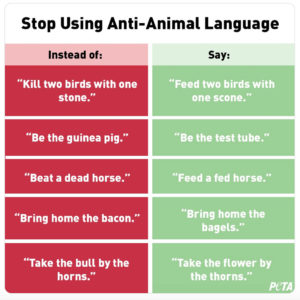
It will be interesting to see if the movement gains any traction – but I suspect even the most devout PETA member is just a little embarrassed right now. But there may be a lesson in this for us – as an industry – in terms of our own messaging to the public.
- Don’t sweat the small stuff. If PETA wants to stop animal suffering, they’d be best not to waste their energy and money on a language the animals can’t even understand.
- Keep your messaging on point and geared to your most pressing objectives.
- Don’t attack people’s sentimental attachments. Language is a great example. People don’t like to change, and they don’t like to rewrite history.
Recently, I hung out at a meat counter. And believe me, I would feel silly telling this to anyone else, but I happen to know that anyone with a vested interest in the meat industry has this same hobby. Meat market means a whole different thing to us, and I think that’s a good thing. Anyway, when I ask people what country they like to buy their beef from, they generally answer with something like, “I only buy Canadian beef” and while they say this, their chest puffs out a little, the patriotism becomes almost palpable, and the air thickens, not unlike viscous maple syrup. And then I ask them where they buy their pork from, and things change. “Pork? I don’t know… is it Canada?”
We need to change this. We need to put our heads together, and put together a marketing campaign that will potentiate our pork patriotism in the same way. Of course, the loyalty to Canadian beef is much more a western phenomenon, thanks in part to the hugely successful Alberta Beef Producers campaigns, and also thanks to the BSE crisis. (For the record, and to not tempt fate, I am NOT advocating for any kind of similar crisis in our industry.)
And I think now is an excellent time to do it. Canadians are relieved we have a new NAFTA, but they haven’t forgotten the drama, and the sense of exploitation that Trump left us feeling. That means the Canadian market is already primed and ready to receive our message – we just need to package it in the right language, and that won’t include the word “bagel”.



